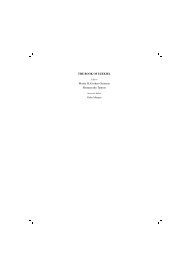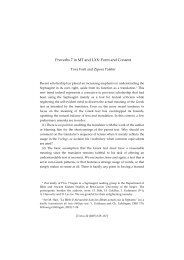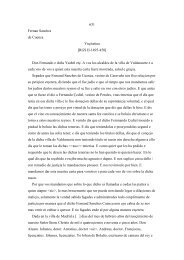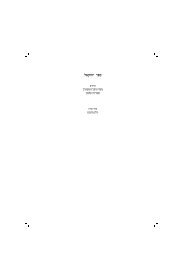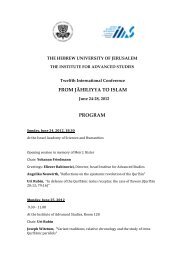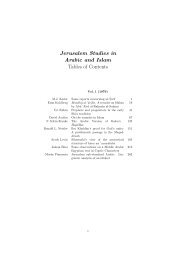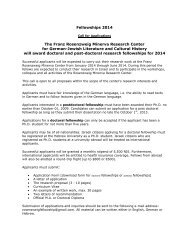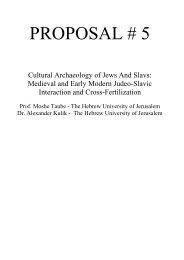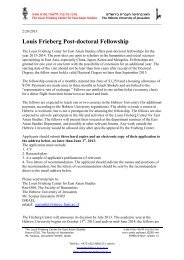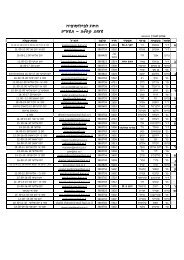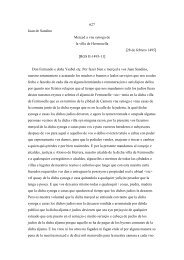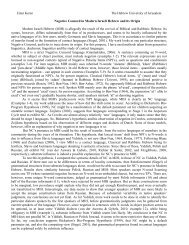Baber Johansen
Baber Johansen
Baber Johansen
Create successful ePaper yourself
Turn your PDF publications into a flip-book with our unique Google optimized e-Paper software.
27<br />
The [term] fiqh, when used without further specifications, does<br />
not apply to knowledge in general as indicated by the sciences of<br />
grammar, medicine, language, geometry and arithmetic. The<br />
name ‘jurists’ (fuqahÁÞ) does not denote the excellent scholars in<br />
these [disciplines] and their disciplines are not called fiqh. The<br />
same holds true for the scholars in the fundamentals of religion<br />
(al-ÝulamÁÞ bi-uÒÙl al-dÐn) who are the experts in substances and<br />
accidents (jawÁhir wa-aÝrÁÃ), genera and species (ajnÁs waanwÁÝ),<br />
the specific and the differences (al-khÁÒÒa wa l-faÒl), in<br />
the inference from that which is present to that which is absent<br />
(al-istidlÁl bi l-shÁhid Ýala l-ghaib). The name of jurists does not<br />
apply to them because they have no knowledge in the norms of<br />
the sacred law (li-Ýadmi Ýilmihim bi-aÎkÁm al-sharÝ). Their [forms<br />
of knowledge] are not called uÒÙl al-fiqh even if the indicants that<br />
we mentioned as fundamental elements are built upon [forms of]<br />
knowledge on which also the confirmation of the fundamentals of<br />
religion (uÒÙl al-dÐn) is established, such as the world’s coming<br />
into existence in time (Îadath al-ÝÁlam), the proof of the creator<br />
(ÒÁniÝ) and that He is one and what one is due to Him and what is<br />
admissible [as predicated] on Him and what is not admissible, and<br />
the sending of the prophets and their truthfulness and other<br />
similar things. But as these [fundamentals] are more specific for<br />
the fundamentals of the religion (uÒÙl al-dÐn) one does not,<br />
without specification, apply to them what has been constructed<br />
from fundamentals that are below them. In the same way one does<br />
not say about the [study of] language that it is [a form of]<br />
fundamentals of religion (uÒÙl al-dÐn), even though the legal<br />
norms are based on linguistic terms. 81<br />
Based on this kind of reasoning, jurists of all schools defend the<br />
autonomy of the disciplines of the law, and other religious disciplines, for<br />
the rules and norms of their own field, while recognizing that in the<br />
division of labor between theology and the fundamentals of religion on<br />
the one hand, and exegesis, ÎadÐth studies, applied law, and the<br />
methodology of law on the other, the second group relies for the relation



